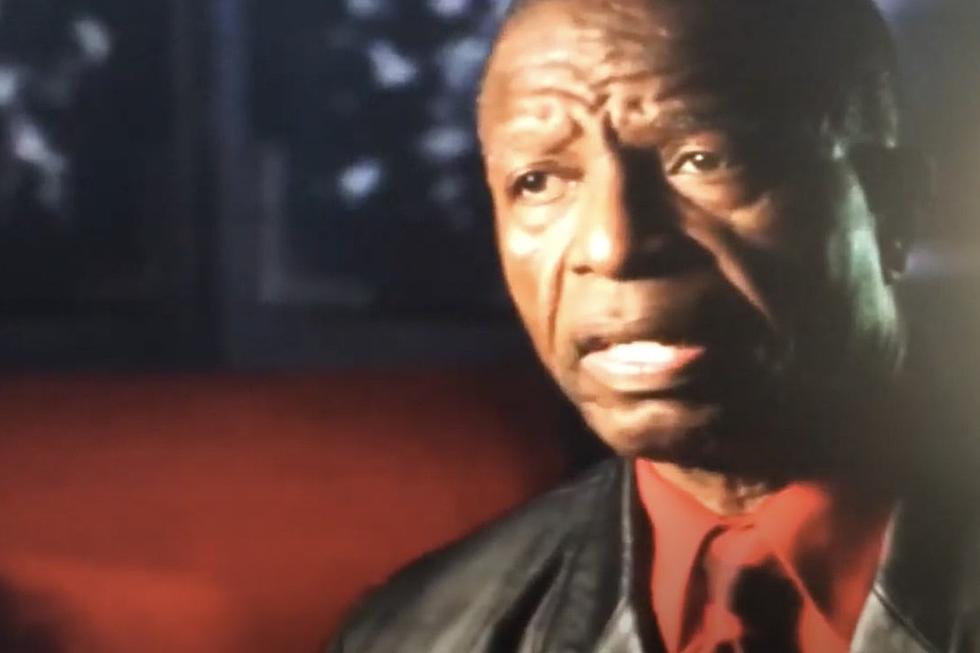
How James Brown Delivered His ‘Rallying Cry,’ ‘Say It Loud (I’m Black and I’m Proud)’
By summer 1968, James Brown had seen enough. Racial tensions, rioting in the streets and the murder of an iconic civil-rights leader inspired the singer to release the most politically charged song of his career: “Say It Loud (I’m Black and I’m Proud).”
“I was in Los Angeles and there was all this infighting, this crime and all,” Al Sharpton recalled Brown telling him in the documentary Mr. Dynamite: The Rise of James Brown. “And he said, ‘I looked and I said to myself, ‘We’ve lost our pride.’” That night, Brown went to his hotel room and wrote the lyrics to “Say It Loud (I’m Black and I’m Proud)” on a napkin. “In the spur of the moment, it became a song that literally changed the social dynamics of the United States,” Sharpton noted.
While the track itself came together quickly, its inspiration had been long building. For years, Brown had eschewed politically charged lyrics, focusing more on songs about celebration and romance. But the civil-rights movement became impossible to ignore. As a leader in the black community, he saw a responsibility to reflect important issues plaguing his people.
To Brown, an increased social consciousness was a natural evolution of his music. “Soul is when a man has to struggle all his life to be equal to another man,” the singer declared. “Soul is when a man plays taxes and still he comes up second. Soul is when a man is judged not for what they do, but what color they are.”
Just four months before unveiling “Say It Loud (I’m Black and I’m Proud),” Brown delivered one of the most important performances of his career. On April 4, 1968, Martin Luther King, Jr. was assassinated. The civil-rights leader’s death sparked outrage and rioting across America. The next night, Brown was scheduled to play a concert in Boston. Despite concern from some local leaders, he determinedly went through with the show.
“Even though I was going to take a financial bath, I knew I had to go on and keep the peace,” Brown recalled in his autobiography I Feel Good: A Memoir of a Life of Soul. “There are some things more important than money.”
During the performance, Brown addressed the audience, anecdotally recalling how far he had risen. “In Augusta, Ga., I used to shine shoes in front of a radio station called WRDW,” Brown explained. “I used to get three cents, then up to five cents, then I finally got to six cents. But now, I own that station. You know what that is? That’s black power.”
The Boston experience echoed heavily in Brown’s mind as he penned “Say It Loud (I’m Black and I’m Proud).” “This was not going to be another hit record by a black entertainer like my dear friend Sammy Davis, Jr.’s ‘Candy Man,’” he noted. “This was the real thing, a wake-up call, a rallying cry, a statement of pride.”
Listen to James Brown's 'Say It Loud (I'm Black and I'm Proud)'
Released in August 1968, “Say It Loud (I’m Black and I’m Proud)” became an anthem of the civil-rights movement. The single held the No. 1 spot on the R&B chart for six weeks and peaked at No. 10 on the Billboard Hot 100.
Beyond chart achievements and sales figures, the song was highly influential on a deeper societal level. “As an eight-year-old, ‘Say It Loud (I’m Black and I’m Proud)’ was very clear,” recalled Chuck D, co-founder of the rap group Public Enemy. “I remember defining myself as these American terms of negro to colored to black. Because of that one song, black was beautiful. The beginning of being beautiful.”
Still, Brown also received plenty of negative responses for the track.
"People called 'Black and Proud' militant and angry - maybe because of the line about dying on your feet instead of living on your knees,” he explained in his 1986 autobiography James Brown: The Godfather of Soul. “But really, if you listen to it, it sounds like a children's song.
"That's why I had children in it, so children who heard it could grow up feeling pride," Brown continued, alluding to the kids heard in the song. "The song cost me a lot of my crossover audience. The racial makeup at my concerts was mostly black after that. I don't regret it, though, even if it was misunderstood."
“Say It Loud (I’m Black and I’m Proud)” would become one of Brown’s most important songs, as well as his most politically charged hit. Even though he believed the track's message lost its power over the years, he expressed pride in its historical impact. “The song is obsolete now,” Brown opined in his 1986 book. “But it was necessary to teach pride then, and I think the song did a lot of good for a lot of people.”



